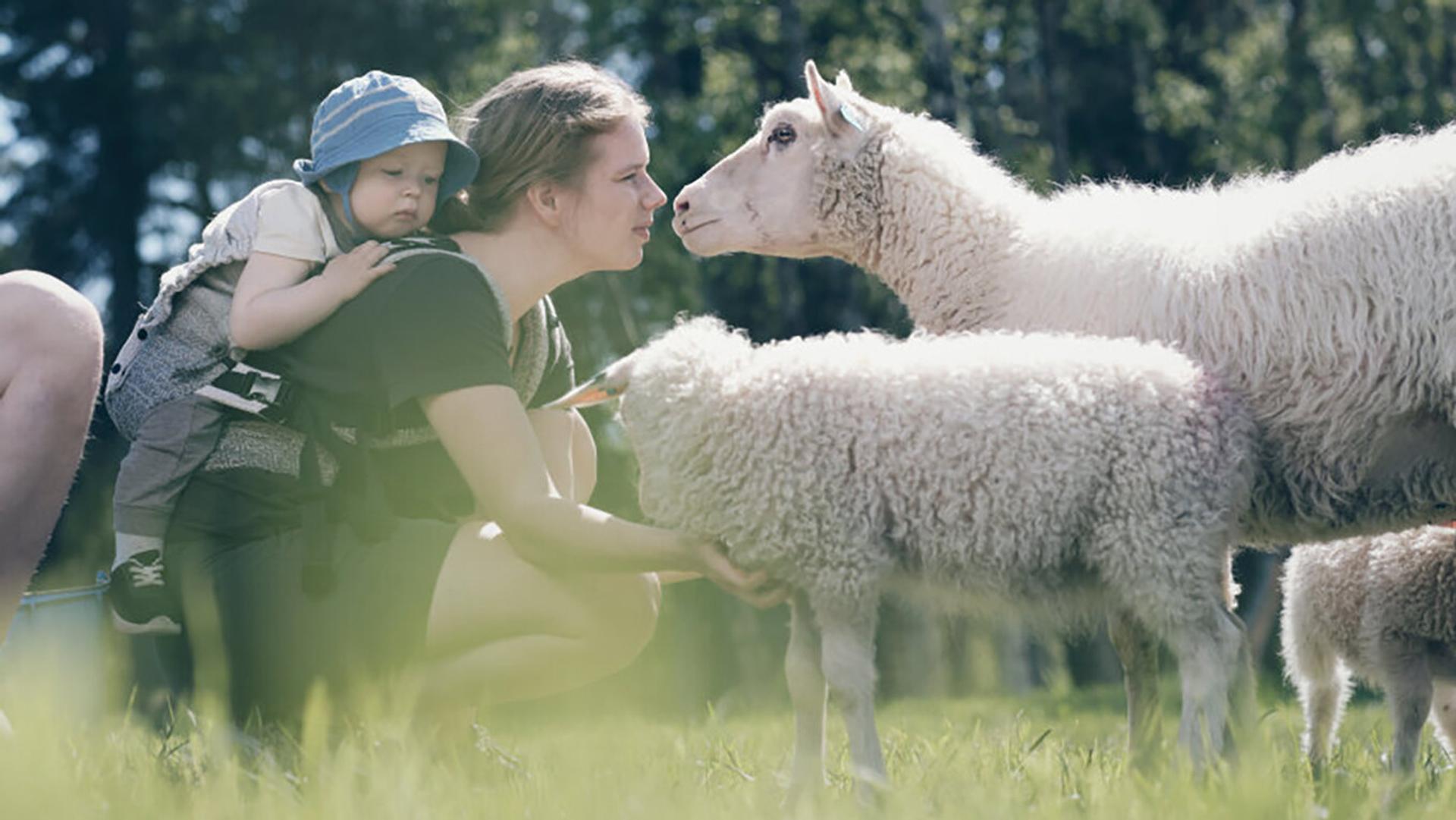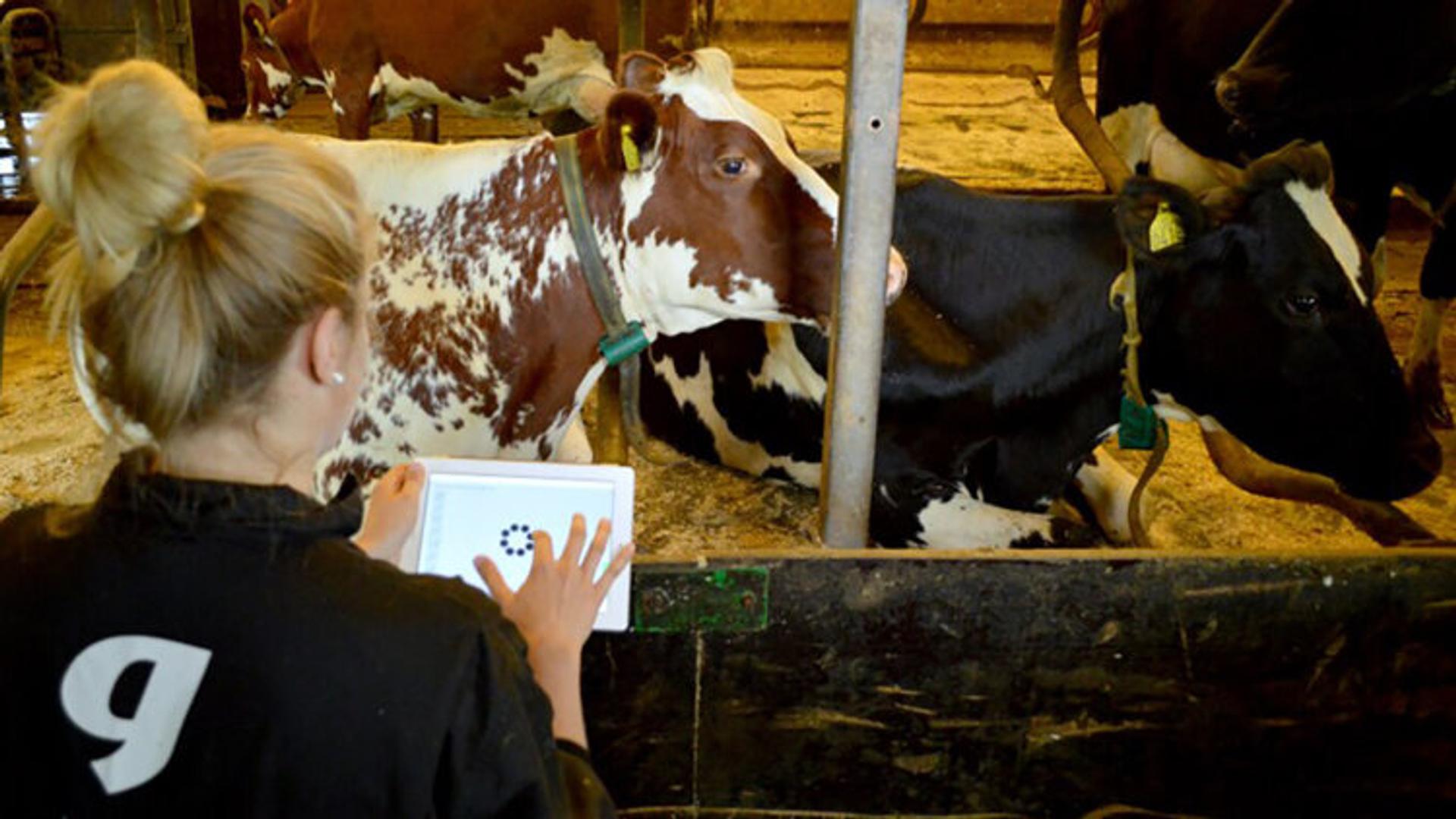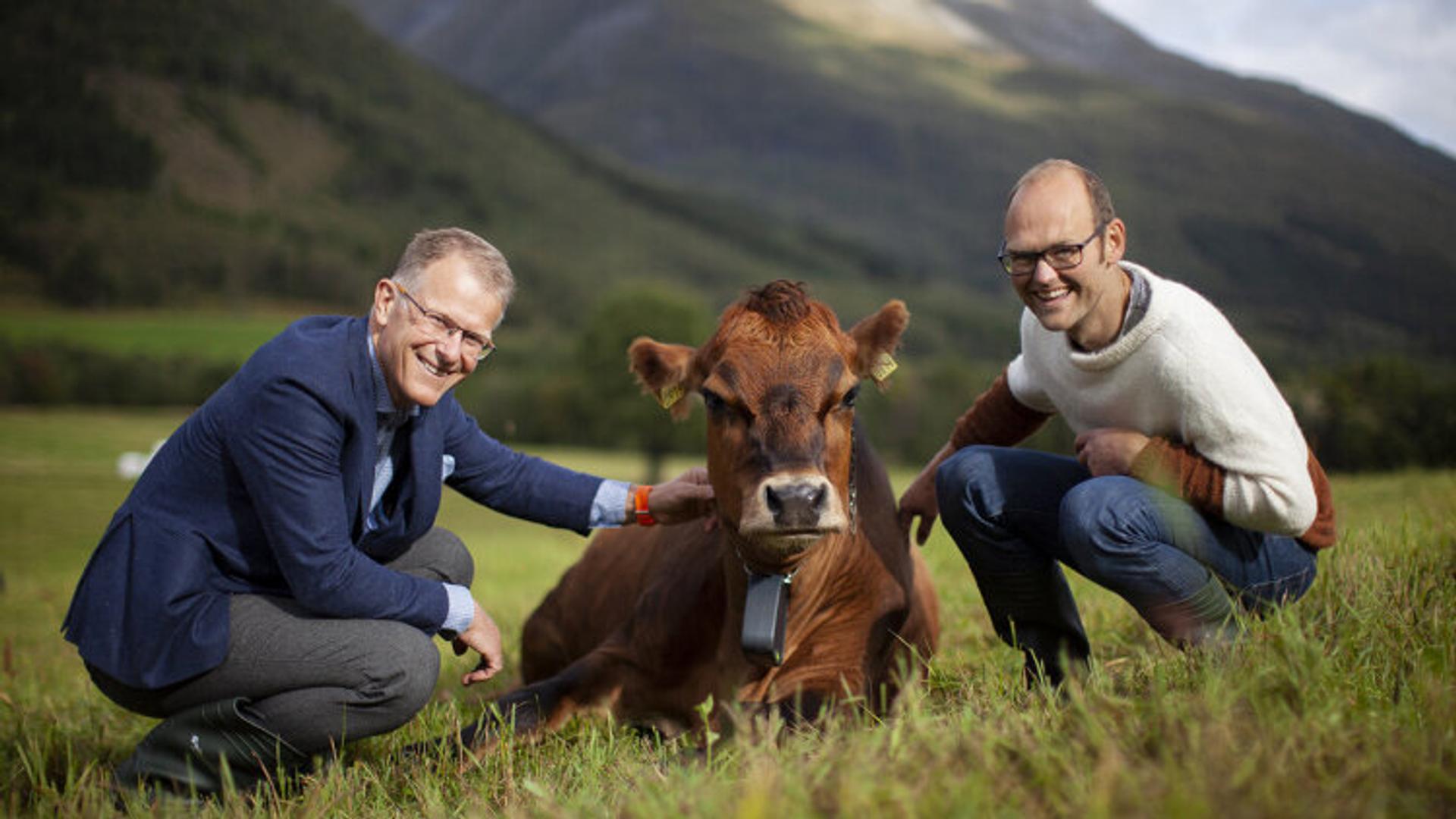Norwegian agritech is making livestock farming better for the animals and the environment

“Our technology to improve dairy cattle genetics has the potential for Norwegian Red to make a difference and contribute to a greener future for the dairy industry, globally,” says Kristin Malonæs, CEO of Geno. The company’s main goal is simply to breed a more climate-friendly cow. Geno has 85 years of experience in successful and sustainable breeding solutions and is banking on that success for the future of its Norwegian Red dairy cattle.
“This is a long-term project, and we expect it to take time. We believe it’s worth it, so we can ultimately breed and deliver more methane-effective cows. We are patient and have great ambitions for the project,” says Malonæs.
The innovative cattle project involves the installation of 17 methane measurement machines, called GreenFeed, at various farms throughout Norway. The machines are set up inside barns to measure methane emissions from selected cows two to five times a day. Geno then analyses the emissions data and cattle feed data to calculate breeding equations to engineer cattle that produce less methane gas.
Data-driven breeding for more climate-friendly cows
“The large volume of data we are gathering from this project will lead to robust R&D to determine how much methane emissions we can cut with our breeding formula. We have already seen that Norwegian Red cattle have lower emissions than other breeds. With more time and research, we can select even better formulas for breeding cattle with the lowest possible methane emissions,” says Malonæs.
Geno’s mission is “breeding for better lives”. With that in mind, the company is sharing its data freely with its research partners in the agritech industry. In doing so, Geno strives to better the entire industry in terms of lowering greenhouse gas emissions, breeding healthy and sustainable cattle, and improving the longevity of individual farms.

Virtual fencing benefits grazing animals and livestock farmers alike
What other solutions can farmers use aside from breeding to improve the sustainability of livestock production?
Allowing animals to graze as much as possible reduces the footprint of livestock farming. Nofence has developed an animal tracking system based on GPS that enables farmers to build virtual fences to track the location of their livestock and monitor grazing. This, in turn, makes it possible for farmers to optimise resources while allowing the livestock to behave in a natural way, ultimately changing the way grazing animals live, eat and impact the environment.
“Nofence allows animals to get back to nature and graze as they were meant to. With our technology, we are circling back to the natural intentions of grazing animals,” says Oscar Hovde Berntsen, founder of Nofence.
“When I tested my first prototype with just one goat,” he adds, “I knew immediately that I had proof of concept.”

Nofence uses collars with transmitters that connect each animal to an app. With the help of the app, farmers define the boundaries of their pastures using a smartphone or tablet and can change these boundaries with the touch of a finger. To keep animals in their designated pasture, the system uses audio warning signals, as well as a light electrical impulse.
“We are aiming to build a community of people who care about animals and the very soil we stand on. By enabling their livestock to graze in better ways, farmers can move to a regenerative practice that is more attractive for both business and generations to come,” says Knut Bentzen, former CEO of Nofence.
Hovde Berntsen points out another benefit in terms of sustainability: “It’s not only about slowing greenhouse gas emissions. Our technology is about the sustainability of the farmer as much as it is about the animals. If the world is going to continue producing food from grazing animals, farmers need to keep farming. Nofence allows farmers to easily care for their animals and their pastures.”
Connectivity technology improves livestock welfare and farm management
Solutions allowing farmers to track where their animals graze is just one of many applications of agritech technology. OS ID has developed solutions enabling farmers to track the identity of their livestock and collect valuable data on animal health, welfare and productivity. This provides farmers with vital information to protect their animals and to streamline and improve their businesses. OS ID calls it “livestock intelligence”.
Livestock are living assets and farmers’ means of production. Their health and welfare are vital to farmers, consumers and society at large. OS ID intelligent identification systems provide traceability and documentation down to the level of the individual animal, enabling farmers to meet the growing consumer demand for information about food origin.
OS ID has also developed the SenseHub monitoring solution, which allows farmers to monitor their cows from a smartphone. SenseHub collects and analyses critical data for each individual animal, delivering insights and analytics that help farmers to better manage the health and wellbeing of their livestock, while improving productivity, profitability and sustainability.
Sharing knowledge for more sustainable livestock production
In addition to advanced breeding techniques, effective tracking and monitoring, and optimal feed and pasture management, knowledge sharing is also critical to ensuring good animal health and welfare and mitigating the environmental and climate impact of livestock agriculture.
“We at Geno are proud of our commitment to sharing knowledge. We believe that if agritech companies continue to work together, we can increase sustainable livestock production across the world,” says CEO Kristin Malonæs.
